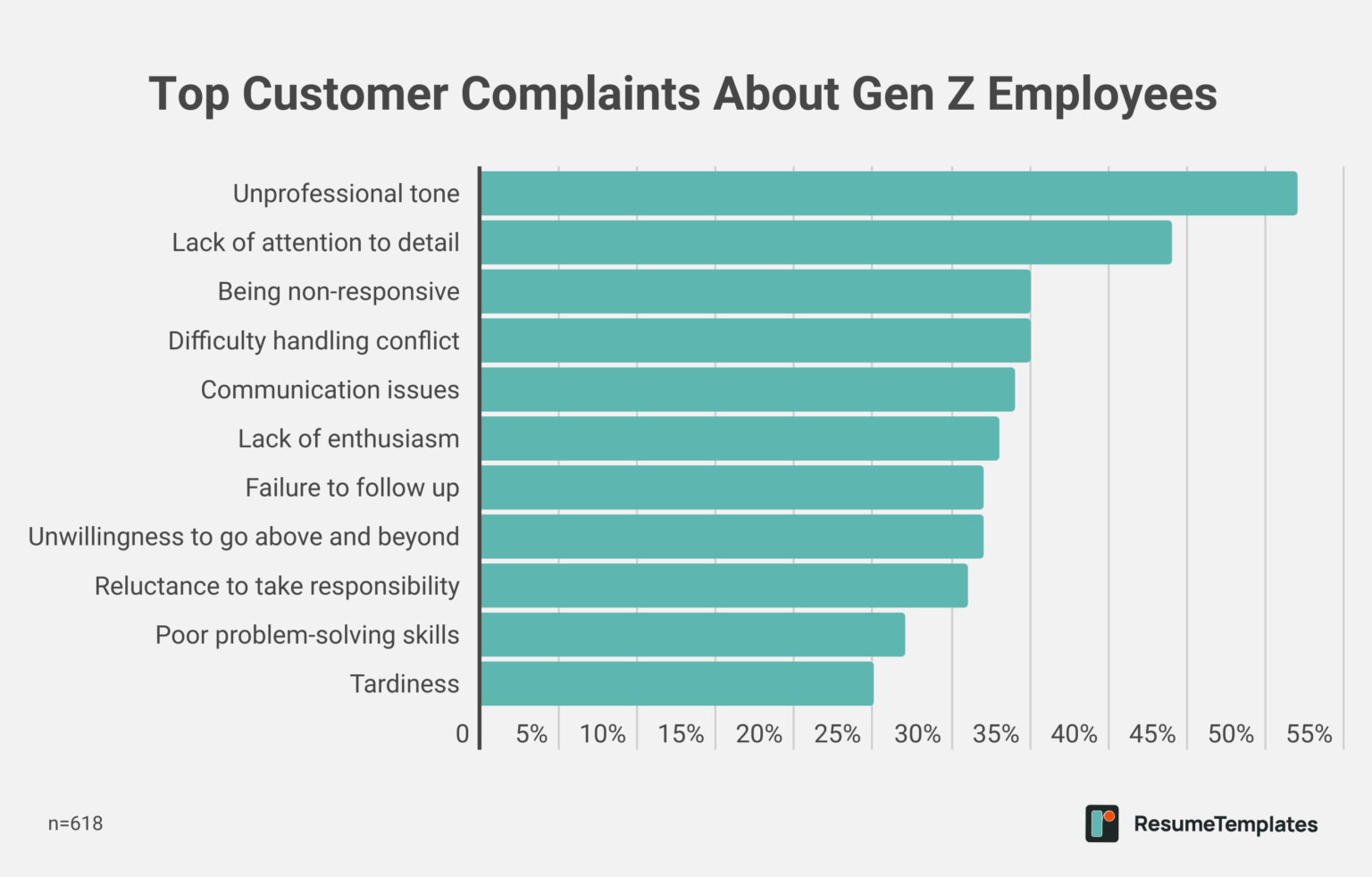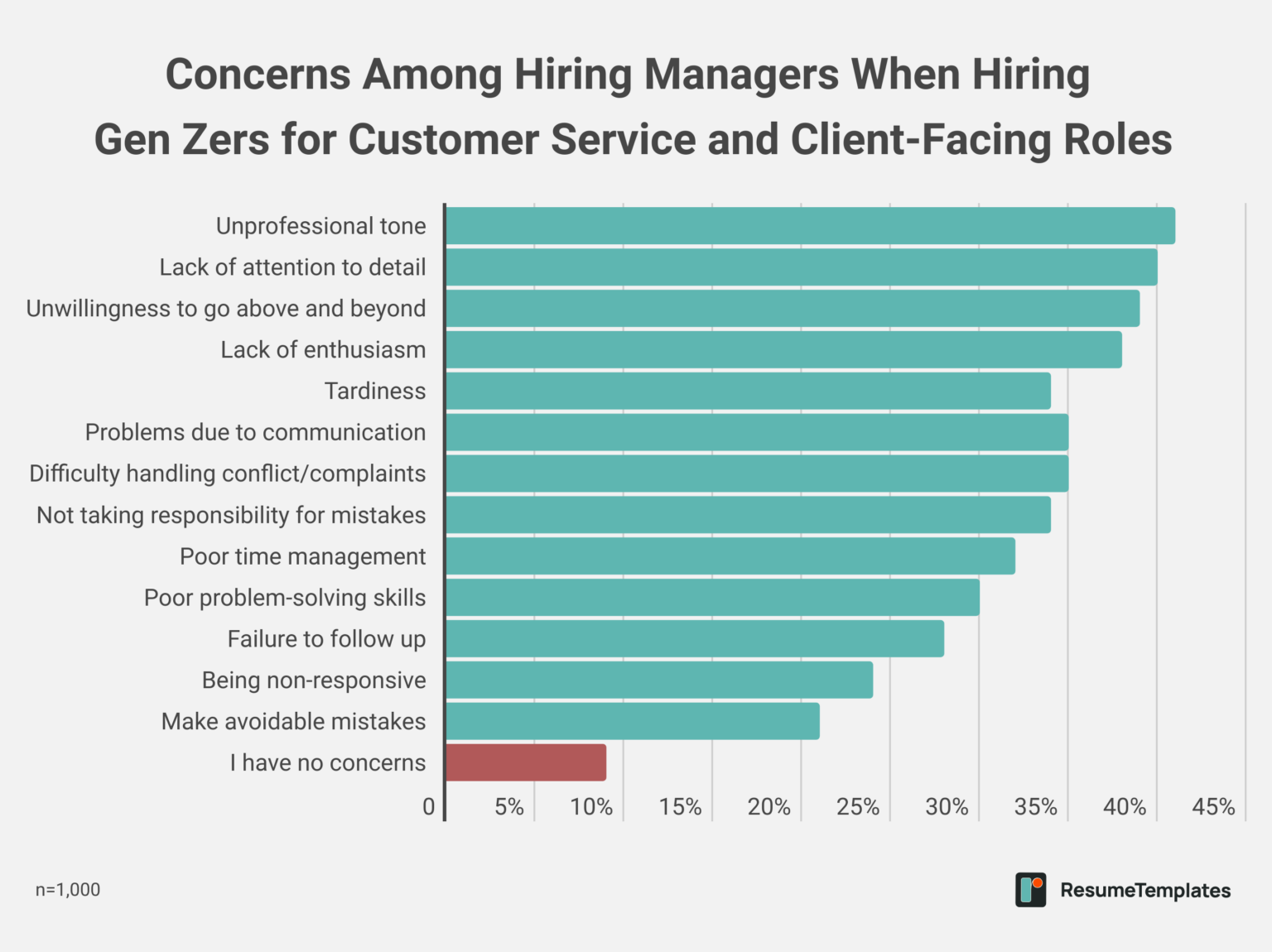
Employers urged to provide training to Gen Zs in customer-facing roles

One in four hiring managers are blaming Gen Z employees in customer-facing roles for losing clients due to their behaviour at work, according to a new poll from ResumeTemplates.
The poll, which surveyed 1,000 hiring managers in the United States, found that 24% of the respondents believe Gen Z employees' behaviour cost them clients.
This stems from wide-ranging complaints from customers on the behaviour of Gen Z employees taking on customer-facing roles, starting from an unprofessional tone to tardiness.

Source: ResumeTemplates
Julia Toothacre, chief career strategist at ResumeTemplates, attributed the Gen Z employees' behaviour to their formative years that were spent online.
"With virtual internships or remote roles often marking their early career experiences, their customer service exposure differs from older generations, who remember a time before email," Toothacre said in a statement.
The findings worsen the reservations of hiring managers in recruiting Gen Zs for customer-facing roles, where unprofessionalism is also a top concern.

Source: ResumeTemplates
As a result, one in eight hiring managers said they are unwilling to hire Gen Zs for customer-facing positions.
"It's unfortunate that a few negative experiences could lead some managers to hesitate in hiring from an entire generation. Managers should remember that Gen Z is diverse — there are many dedicated professionals among them who excel at working with people and are eager to contribute," Toothacre said.
She also noted that it is unlikely that Gen Z is the only generation that has faced such complaints regarding behaviour.
"Older generations may have simply forgotten what it was like to be 'green' at work. Most people probably have a few stories of early career missteps or challenging customer interactions," Toothacre pointed out.
According to the career strategist, employers have to provide training to Gen Z employees struggling from these challenges.
"Many of these concerns are valid and should be proactively addressed in training, especially for customer-facing positions, or through regular feedback from managers," Toothacre said. "After all, they can't improve what they don't know is an issue, and some may need additional guidance."
She pointed out that Gen Zs may also need more training than previous generations due to the "unique circumstances" that shaped them.
"But, with guidance, they'll adapt — just as those before them did."